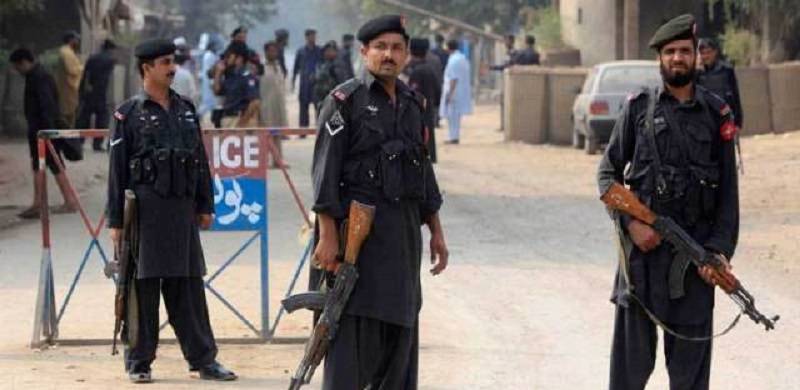
Four women working for a foreign NGO were murdered by unknown extremists in the North Waziristan district of Khyber-Pakhtunkhwa. The Pakistani military's Inter Services Public Relations (ISPR) has stated that the commander involved in this attack had been killed in security operations. Nevertheless, the senior leadership of the Tehreek-e-Taliban Pakistan (TTP) claims to have no knowledge of the attack and so far no organization has come forward to claim responsibility.
According to reports, all four slain women came from impoverished backgrounds in Khyber-Pakhtunkhwa's Bannu district, and they were working for Rs. 16,000 a month.
Among the slain women, Irshad Bibi and Aisha Bibi were sisters – both belonged to Bannu and both were married. The other two victims of the attack, Naheed Bibi and Javeria, were of similar background, but the latter was single. Media reports indicate that these women were working for an NGO named Sabaoon on daily wages. But a spokesperson for the organization has denied this – claiming that the women neither worked for the NGO, nor had any ties to it.
A North Waziristan-based journalist, speaking to Naya Daur Media on condition of anonymity, stated that for the past several months, the region had been in the cross-hairs of terrorists. The journalist further said that the region has been engulfed in fear since the attack on the women. On Tuesday and Wednesday, according to the journalist, women showed up in lower numbers for work at schools and hospitals, due to the general atmosphere of grief in the aftermath of the attack. Security forces are on constant patrol since Monday, so as to be able to deal with any untoward incident, and vigilance in the region has been made more stringent. The journalist further noted that reports had been circulating for months about the presence of militant commander Sajna in the region, and the overall security situation had not been reassuring. According to the journalist, this attack was carried out in an atmosphere of poor coordination between police and security forces, leading to the loss of four lives.
On the other hand, Peshawar-based journalist Rahimullah Yusufzai, while giving an interview on a local TV channel, stated that consecutive attacks in North Waziristan proved that a large number of militants is now present in the region. He rejected the suggestion that any area was under the control of the Taliban, but the series of attacks suggests to him that in addition to fighters, there is a large number of facilitators present in the region – and that peace has not yet been established in North Waziristan. This, he noted, is a situation that worries the government and security forces. He further stated that othe situation in North and South Waziristan is tense at the moment and a feeling of insecurity prevails among the people.
Naya Daur Media attempted to reach North Waziristan's District Police Officer (DPO) for his views on the security situation in the region and the strategy of police to counter it, but he did not respond to phone calls.
According to reports, all four slain women came from impoverished backgrounds in Khyber-Pakhtunkhwa's Bannu district, and they were working for Rs. 16,000 a month.
Among the slain women, Irshad Bibi and Aisha Bibi were sisters – both belonged to Bannu and both were married. The other two victims of the attack, Naheed Bibi and Javeria, were of similar background, but the latter was single. Media reports indicate that these women were working for an NGO named Sabaoon on daily wages. But a spokesperson for the organization has denied this – claiming that the women neither worked for the NGO, nor had any ties to it.
A North Waziristan-based journalist, speaking to Naya Daur Media on condition of anonymity, stated that for the past several months, the region had been in the cross-hairs of terrorists. The journalist further said that the region has been engulfed in fear since the attack on the women. On Tuesday and Wednesday, according to the journalist, women showed up in lower numbers for work at schools and hospitals, due to the general atmosphere of grief in the aftermath of the attack. Security forces are on constant patrol since Monday, so as to be able to deal with any untoward incident, and vigilance in the region has been made more stringent. The journalist further noted that reports had been circulating for months about the presence of militant commander Sajna in the region, and the overall security situation had not been reassuring. According to the journalist, this attack was carried out in an atmosphere of poor coordination between police and security forces, leading to the loss of four lives.
On the other hand, Peshawar-based journalist Rahimullah Yusufzai, while giving an interview on a local TV channel, stated that consecutive attacks in North Waziristan proved that a large number of militants is now present in the region. He rejected the suggestion that any area was under the control of the Taliban, but the series of attacks suggests to him that in addition to fighters, there is a large number of facilitators present in the region – and that peace has not yet been established in North Waziristan. This, he noted, is a situation that worries the government and security forces. He further stated that othe situation in North and South Waziristan is tense at the moment and a feeling of insecurity prevails among the people.
Naya Daur Media attempted to reach North Waziristan's District Police Officer (DPO) for his views on the security situation in the region and the strategy of police to counter it, but he did not respond to phone calls.
